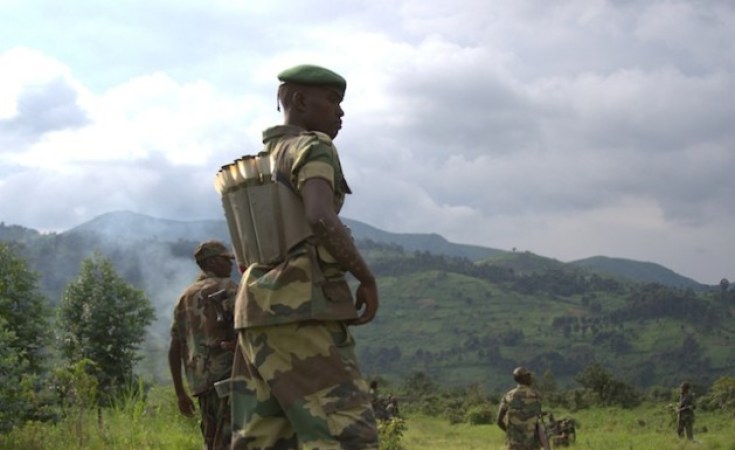The peacebuilding challenge in the Democratic Republic of Congo is daunting, to be sure. But the alternative is, and has been, a catastrophe.
Peace talks between the governments of the Democratic Republic of Congo (DRC) and Rwanda are scheduled to resume in Angola's capital, Luanda, this week. The Angolan-led process has international support, but as Congolese Catholic leaders recently noted, agreements are routinely violated in the DRC, and accountability is in short supply.
There is plenty of blame to go around when it comes to the DRC. Thoughtful experts have emphasized the importance of applying more pressure on Rwanda to stop backing the M23 insurgency, and they are right. The strategy of using international leverage has worked before, and while Kigali has made headway in its attempt to become an indispensable security partner on the continent (and therefore beyond reproach), it is not yet untouchable.
Others have stressed that Kinshasa's failures are ultimately to blame for the seemingly endless insecurity in the east. They are right too. The central government has too often been both deeply corrupt and profoundly incompetent. Efforts to professionalize the military have largely failed to overcome the misaligned economic incentives and factionalism that too often render it ineffective.
Congolese leaders, civil society activists, and, most recently, the United Nations' Humanitarian Coordinator in the DRC have accused the rest of the world of indifference to the human cost of the decades-long crisis in the east. While funding and staffing one of the world's most expensive peacekeeping missions for over two decades is certainly not akin to apathy--and the United States' recently announced a substantial increase in humanitarian assistance to the DRC--it is undeniably true that international efforts to bring lasting peace to the region have failed, and that the dire humanitarian situation attracts far less attention and funding than other conflicts around the world.
This abundance of culpability enables all parties to keep pointing their fingers, focusing on others' sins rather than changing their own behavior. Stop-and-start ceasefires give parties a chance to buy time and posture internationally, but ultimately only contribute to the cycle of violence and fuel the profound mistrust of the Congolese people. No unified, serious attempt to address the underlying political and economic issues that fuel ongoing conflict is underway.
For the United States, neither the Biden administration's recognition of the Congo's importance to shaping the green economy and fate of the climate nor Secretary Blinken's direct engagement with Kinshasa and Kigali has translated into a clear political strategy for eventually turning the page on this long chapter of crisis. While the United States certainly cannot go it alone, it also cannot afford to continue business as usual. Washington cannot pursue its broader interests in the DRC while the country is crippled by insecurity. There are many Congolese citizens desperately seeking change. Listening to them and supporting their efforts is just as important as trying to persuade political elites to de-escalate the latest tensions.


